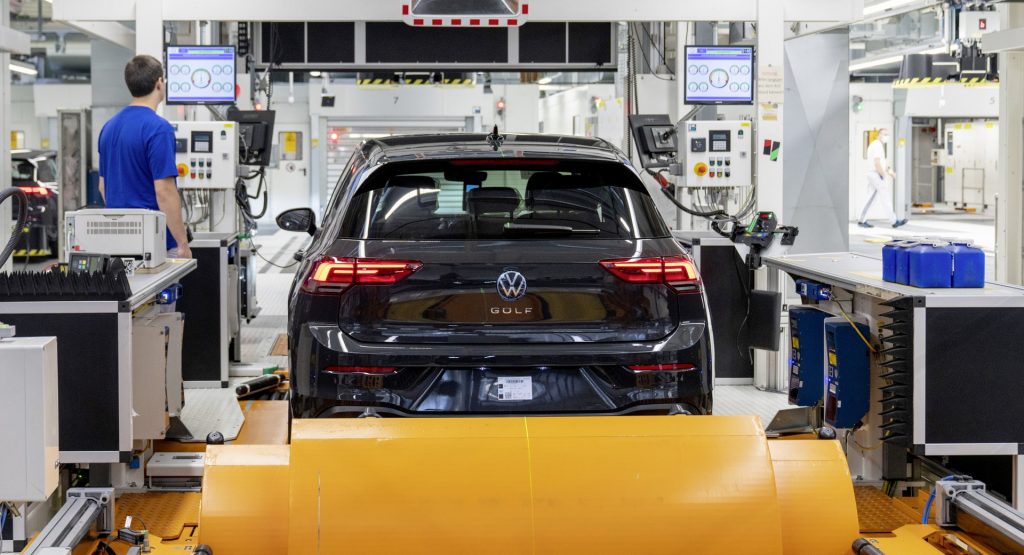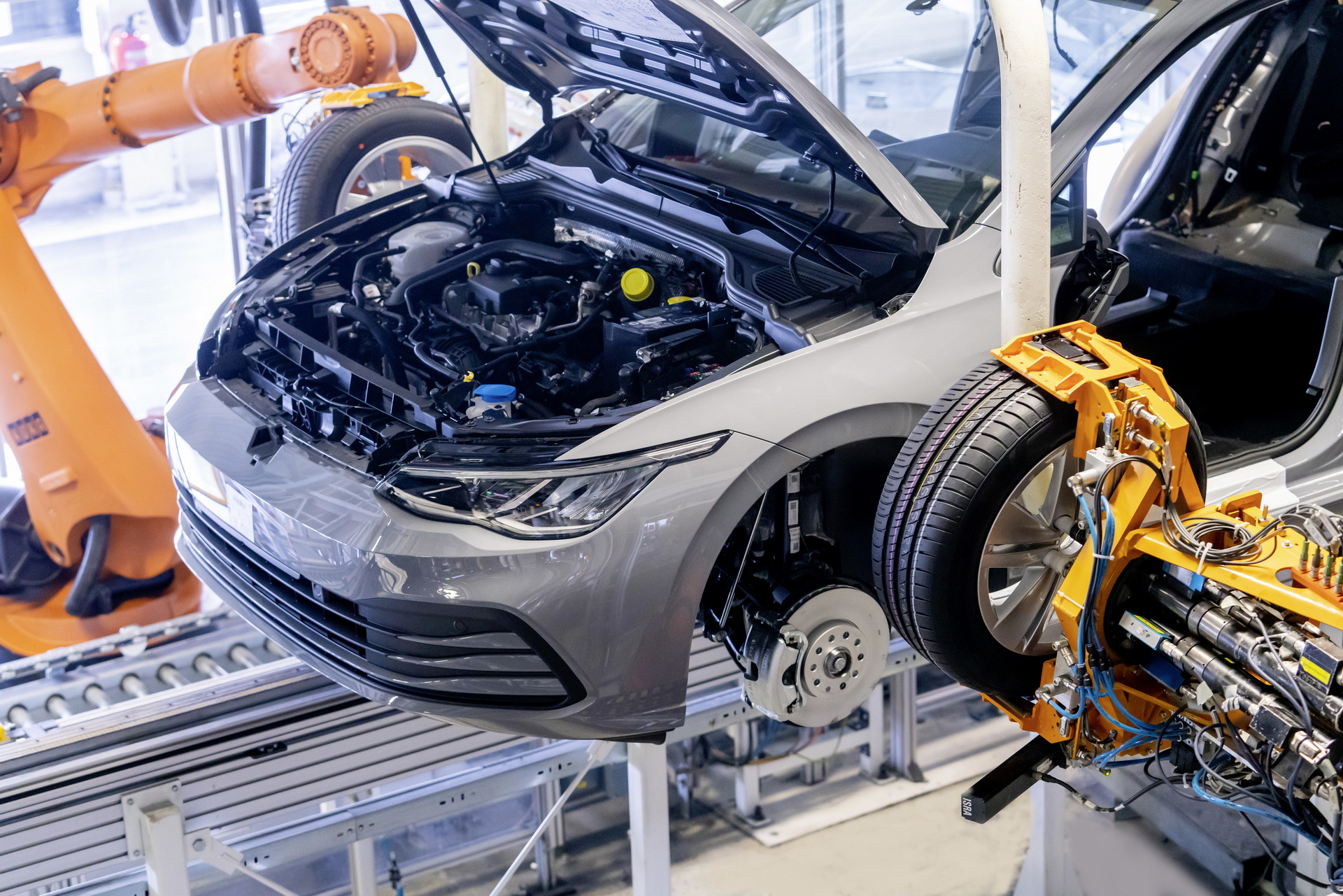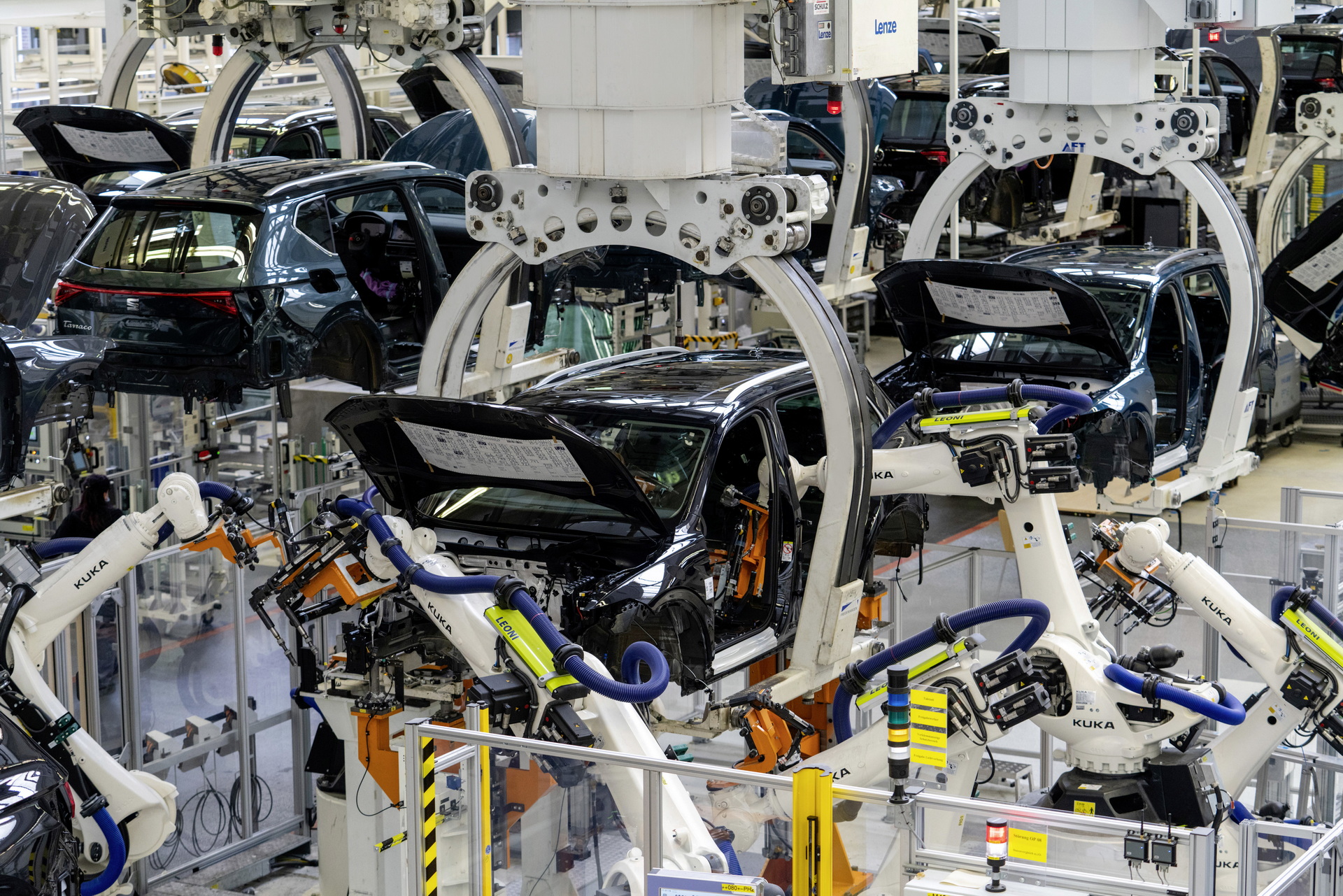Volkswagen doesn’t believe that the worst of the semiconductor chip shortage is behind us and is preparing for production numbers to continue to fall.
Citing unnamed sources, Germany’s Manager Magazin reports that the automaker is preparing for a scenario in which the chip crisis lasts until 2023. Its most pessimistic predictions see production falling to 8 million in 2022, down from 9 million this year. The report says that even if things go relatively well, it still expects production to be down from 2021.
Speaking to Reuters, VW said that it anticipates a slight easing of chip scarcity in 2022, but believes the first half of the year will remain highly volatile. Its German competitors, BMW and Daimler, have said that they expect much the same, predicting that shortages will last well into next year.
Read Also: Ford Signs Deal With Semiconductor Manufacturer To Boost Production Of U.S.-Made Chips
To deal with the continuing crisis, Volkswagen’s brands Audi and Skoda have said they will extend holiday breaks until January 10 because of the supply bottleneck, while Audi said it expects the situation to continue for months. “We expect to be occupied with this crisis for months on end in the coming year,” a spokesperson said. “The scarcity could extend for even longer.”
Porsche, too, is pessimistic about the odds of the chip crisis ending promptly, arguing that automakers must take production into their own hands. “Anyone who believes the chip crisis will calm itself in the next year is mistaken,” CEO Oliver Blume told German media.
In September, estimates suggested that the chip shortage cost the automotive industry $210 billion in lost revenue and has led to 7.7 million fewer vehicles being produced than would have otherwise been made in 2021.






